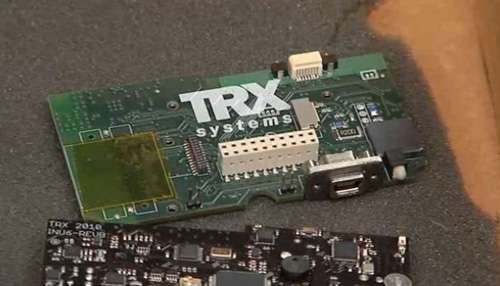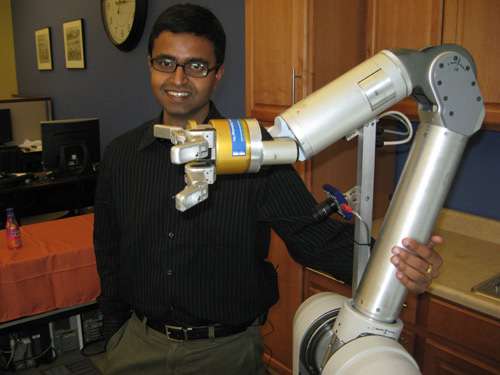Home sensors enable seniors to live independently

People are living longer and they desire to live as independently as possible in their senior years. But, independent lifestyles come with risks, such as debilitating falls and deteriorating health resulting from inadequate care. To address these issues, researchers are developing "smart home" technologies to enhance the safety of residents and monitor their health conditions using sensors and other devices
The unobtrusive monitoring of individuals with in-home sensors offers enormous potential for detecting early health problems—before they become big problems—so timely interventions can be provided to improve the health trajectory. The result is continued high functional ability, independence and better health outcomes. Early detection of health changes is the key to this approach.
This project leverages ongoing work at the University of Missouri in Health Alert Systems with sensor technology. The Health Alert System is being tested in senior housing in Columbia, Mo., (with partner, Americare) and Cedar Falls, Iowa, (with partner, Western Home Communities), using motion sensors for activity monitoring, webcam silhouette images and Kinect depth images for gait analysis, vision and acoustic sensing for fall detection, and a new hydraulic bed sensor that captures quantitative pulse, respiration and restlessness. Pattern recognition algorithms are used to look for changes in the sensor data patterns and generate health alerts to clinicians, who provide further diagnosis and determine appropriate interventions.
The usability and effectiveness of the Health Alert System are being evaluated for managing chronic health conditions. Testing the Health Alert System at a remote site from the healthcare providers will provide important information about how the approach scales up into other settings. This will provide an important next step towards moving the approach into independent housing where seniors want to be, and offers significant potential healthcare cost savings.

The research will impact the health care and quality of life for older adults. New approaches will assist health care providers to identify potential health problems early, offering a model for eldercare technology that keeps seniors independent while reducing health care costs. The project will train the next generation of researchers to handle real, cyber-physical systems. Students will be mentored by an interdisciplinary team, and research outcomes will be integrated into the classroom.
Provided by National Science Foundation

















